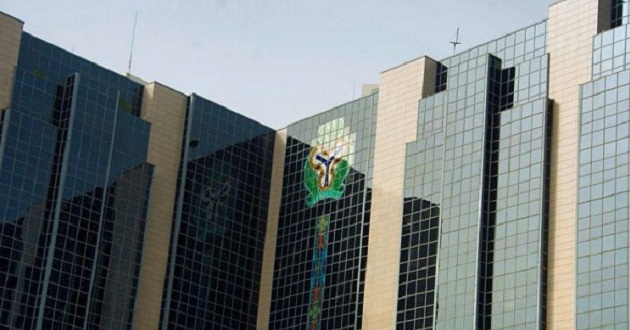Business
CBN policy forces banks to reject high interest yielding deposits

Due to the Central Bank of Nigeria (CBN) policy that mandated banks to give out at least 60 per cent of their deposits as loans or be sanctioned, banks in Nigeria are now rejecting high interest-yielding deposits.
The CBN had announced pro-growth measures, such as requiring banks to report loan-to-deposit ratios of 60 per cent in a bid to make them lend more money to boost the local economy.
According to the director, Investment Banking at Coronation Merchant Bank Limited, Abiodun Sanusi, who spoke with newsmen on Monday, the policy implementation, which takes effect on September 30, has presented two options to the banks.
He said a bank can either reject costly deposits from institutional investors or increase their loan positions.
Sanusi added that the strategy adopted by each bank depends on its business decision.
His words: “There are two stands; one of them is, if I am falling short of the loan to deposit ratio which most banks are, I would increase my loans by converting my positions of investments in treasury bills and bonds to high risk or loans to private sector. This, he said, could raise the non-performing loans.”
He said banks that are happy with their risk asset positions and not keen on lending more are already shedding deposits.
This, they are doing by cutting deposit rates they give to institutional investors, pensions and the likes. However, the affected banks are not able to control retail savers who demand little or nothing in interest and have to save their money.
He said: “The other strategy is if I am happy with my risk asset and I do not want to increase it, I would shed my deposit. We have started seeing it. Some of the banks have started shedding their deposits by reducing the deposit rates they give to institutional investors, the pensions and the likes.
“However, they cannot control the retail deposit because the citizens need to keep their money in the bank, but deposits from treasury bills, institutional investors, corporates the banks can reject it.”
Read also: Nigerian government says establishment of national carrier remains top priority
Treasury bills yields remained pressured as average yield across tenors dipped further by 51 basis points week-on-week to settle at 13.3 per cent on Friday from 13.8 per cent the previous week.
According to Sanusi, the strategy adopted by each bank differs.
“So, it is neither here nor there depending on the stand the bank takes. You can increase your risk asset which can likely increase your non-performing loan ratio. But that may not happen if you start lending to good sectors or creating assets that are good,” he said.
Continuing, he said that a bank that is skeptical of its risk, can reduce its deposits and still maintain the required loan to deposit ratio.
“But the overall impact is that banks want to give out more loans due to this policy, whether you want to do option one or two.” he added.
Sanusi said the banking sector has started seeing instances whereby companies that are struggling to pay back their loans have started restructuring their loans because the banks want to keep the loans rather than write them off which is good for the economy.
He said: “A lot of manufacturing companies suffered interest rates at 23 per cent before the end of recession. That affected a lot of the profitability and capability to payback their loans and default rate increased. With this policy, banks have started to create a restructuring and a longer term loan that those businesses deserve.
“So, overall, there is a huge positive gain in this 60 per cent loan to deposit ratio which means more loans would be given and also banks are now tenuring the loans from maturity to longer times.”
Join the conversation
Support Ripples Nigeria, hold up solutions journalism
Balanced, fearless journalism driven by data comes at huge financial costs.
As a media platform, we hold leadership accountable and will not trade the right to press freedom and free speech for a piece of cake.
If you like what we do, and are ready to uphold solutions journalism, kindly donate to the Ripples Nigeria cause.
Your support would help to ensure that citizens and institutions continue to have free access to credible and reliable information for societal development.
























